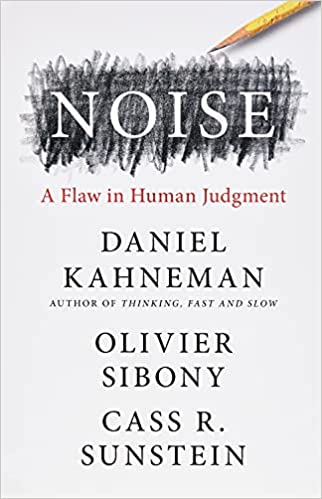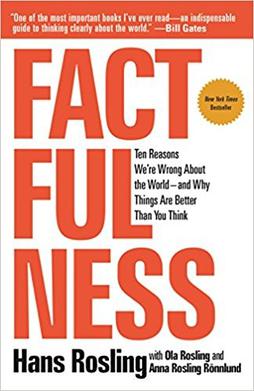Before suggesting four books about Data and Human Bias, let me ask you a simple question. What could oil and data have in common? They seem to belong to different worlds because an oil refinery sounds like an industrial cathedral. Usually, it is in the middle of the ocean, creating long shadows with its long towers.
Despite that, the data and oil industry have much to share: they are both an essential fuel for the world economy: the former feds cars, plastics, and drugs, while the latter power all kinds of online devices and services. They also both created new infrastructure, business, monopolies and economies. Probably data did it in an even more disruptive way by challenging current regulations and business models.
If you feel interested in the phenomenon, check four books about data I have enjoyed reading in the past.
Freakonomics: A Rogue Economist Explores the Hidden Side of Everything

It will not be the first time you read about Steven Levitt and Steven Hubner’s books. He’s an American economist who has worked on several topics such as crime, politics, and sport, using data to deeply understand the causes and effects of those dynamics in everyday society.
For instance, the author demonstrates cheating among sumo wrestlers in tournaments in the book’s first chapter. However, event organisers cancelled the 2011 Grand Tournament in Tokyo for the first time since 1946 because of match-fixing. Other topics examined are information control in Klu Klux Klan and Real Estate Agents, the economics of drug dealing, the socioeconomic patterns of naming children, and the role legalised abortion has played in reducing crime.
Despite being criticised for the methods but some statisticians, the book is fascinating.
Noise: A Flaw in Human Judgment

Daniel Kahneman is arguably the most influential behavioural economist on Earth. Its work “Thinking Fast and Slow” opened a stunning scenario for understanding decision-making processes. Last year he came back with another story of bad human judgment.
Why do doctors give different diagnoses when seeing the same patients? Why do jurors give other sentences according to the skin of the guilty one ? or according to the time of the day? Why does none escape from this kind of judgement flaw? The cases are explained with studies to support that noise lead to sizeable consequences for fairness, health, safety, time usage, and wealth. A recurring statement in the book is that “wherever there is judgment, there is noise and more of it than you think“.
But not everything is lost: at the end of the book, the authors propose a series of bias reduction practices to improve the decision process personally and in an organisation.
Think Like a Freak: The Authors of Freakonomics Offer to Retrain Your Brain

Another example of creative storytelling and statistics that managed to get recognised by Malcolm Gladwell, who said on the Amazon.com review:
“In one of the many wonderful moments in Think Like a Freak, Steven Levitt and Stephen Dubner ask the question: Who is easier to fool—kids or adults? […] That’s what Dubner and Levitt’s first two books—Freakonomics and SuperFreakonomics—were about. It’s about the attitude we need to take towards the tricks and the problems that the world throws at us. Dubner and Levitt have a set of prescriptions about what that attitude comes down to. Still, at its root, it comes down to putting yourself in the mind of the child, gazing upwards at the double lift: free yourself from expectations, be prepared for a simple explanation, and let your attention wander from time to time.”
In this edition, the topics are penalty kicks, hot dog eating, and lotteries. Again, the thinking out of the box will catch you and will teach you how to think like a freak with the following tactics:
- First, put away your moral compass. It’s hard to see a problem clearly if you’ve already decided what to do about it.
- Learn to say “I don’t know”—until you can admit what you don’t yet know. It’s virtually impossible to learn what you need to.
- Think like a child—because you’ll come up with better ideas and ask better questions.
- Take a master class in incentives because incentives rule our world for better or worse.
- Learn to persuade people who don’t want to be influenced—because being right is rarely enough to carry the day.
- Learn to appreciate the upside of quitting—because you can’t solve tomorrow’s problem if you aren’t willing to abandon today’s dud.
Factfulness: Ten Reasons We’re Wrong About the World – and Why Things Are Better Than You Think

In 2018 Bill Gates highlighted this book as one of his suggested five books worth reading for summer.
Do you know that a chimpanzee knows better than us how’s the world doing in terms of poverty, population and schooling? Hans Rosling tries to understand why the population has such a wrong perception of world data: the problem is that people do not know what they do not know and cover that ignorance gap with solid bias.
Rosling recommends thinking about the world as divided into four levels based on income brackets (rather than the prototypical developed/developing framework) and suggests ten instincts that prevent us from seeing real progress in the world.
More than that, I think this book helps understand how to do something for the world when so many bad things happen all at once: the authors suggest that it’s true that you cannot save everyone. Still, you can focus on the causes currently creating the most significant amount of sufferance or the areas in which the effort would make the most considerable amount of benefits. For instance, despite all the possible reason someone could lose their life, cardiovascular diseases are still the leading cause of death, and a slight improvement in that would save millions of lives.
And you? have you read one of those books? Do you have any other book about data and bias you suggest?

Leave a Reply